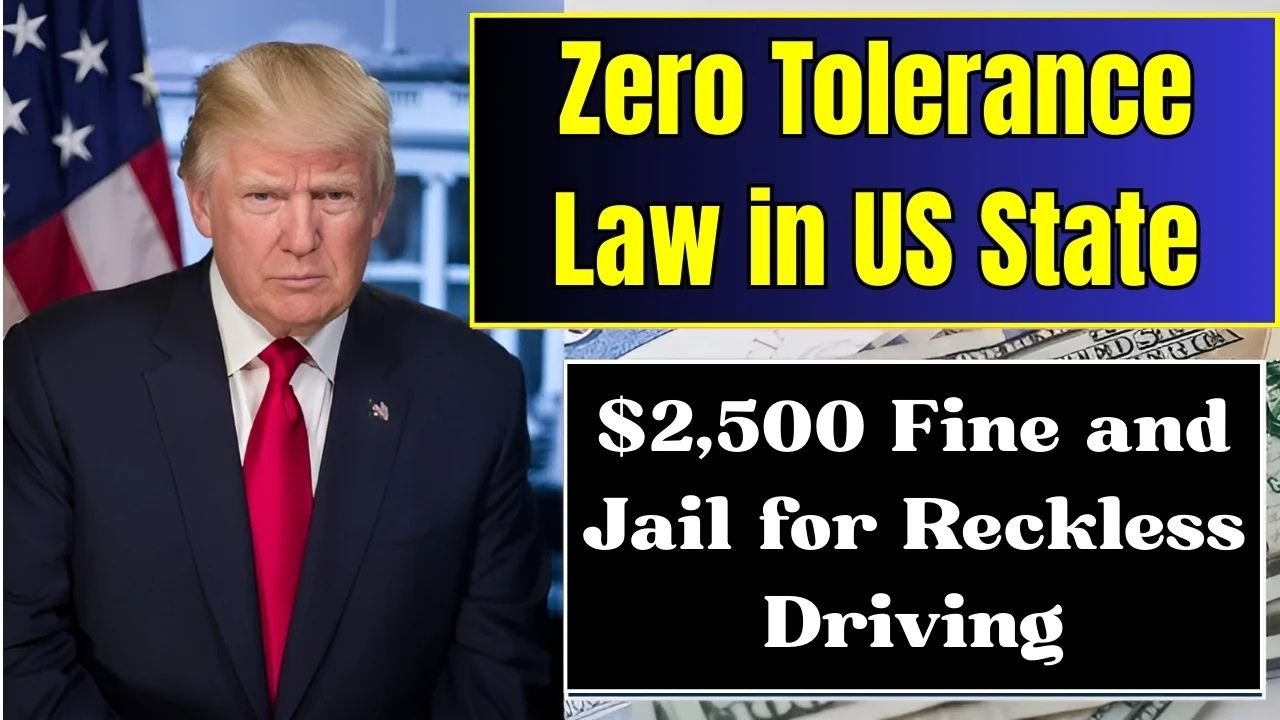Reckless driving is no longer just a slap-on-the-wrist offense in many U.S. states. With zero tolerance laws cracking down on dangerous driving, you could face fines up to $2,500 and jail time—even for a first offense. These strict rules aim to curb preventable accidents and save lives. If you’re wondering what reckless driving means, who’s at risk, and how to avoid life-altering consequences, this guide breaks it all down.
What Are Zero Tolerance Laws for Reckless Driving?
Zero tolerance laws signal a tough stance on reckless driving, treating it as a serious crime rather than a minor traffic violation. States have adopted these policies to deter behaviors that endanger lives, with hefty fines and jail time as the consequences. Unlike in the past, leniency is rare—courts are sending a clear message: one reckless move can cost you dearly.
Why These Laws Matter
Reckless driving isn’t just about speeding or showing off; it’s a leading cause of deadly crashes. According to the National Highway Traffic Safety Administration, thousands of lives are lost annually due to preventable accidents caused by reckless behavior. Zero tolerance laws aim to make drivers think twice, reducing accidents and protecting communities.
What Counts as Reckless Driving?
Reckless driving is defined as operating a vehicle with “willful or wanton disregard” for the safety of people or property. This broad definition gives law enforcement flexibility to issue citations. Common actions leading to a reckless driving charge include:
- Speeding 25 mph or more over the limit.
- Weaving dangerously through traffic.
- Street racing or performing stunts.
- Fleeing a police officer’s signal to stop.
- Driving while distracted (e.g., texting).
- Operating a vehicle while excessively fatigued.
These behaviors can turn a routine traffic stop into a criminal charge with lasting consequences.
Penalties for Reckless Driving in 2025
Under zero tolerance laws, penalties are severe, even for first-time offenders. Here’s what you could face:
| Offense | Penalties |
|---|---|
| First Offense | Up to $2,500 fine, up to 1 year in jail, license suspension (30–90 days in some states) |
| Second Offense | Double fines ($1,000–$2,500), longer jail time (up to 6 months), extended suspension |
| Third Offense | $1,500–$2,500 fine, mandatory jail (weeks to months), possible lifetime license revocation |
Note: Penalties vary by state. For example, Virginia treats reckless driving as a Class 1 misdemeanor with up to 12 months in jail, while California may impose 30 days to 6 months for injury-related cases.
Beyond the Fine: Long-Term Consequences
A reckless driving conviction does more than hit your wallet. It can reshape your future:
- Criminal Record: A misdemeanor or felony conviction can affect job applications, especially for driving-related roles.
- Insurance Rates: Premiums may increase by 80–100% for 3–5 years.
- License Issues: Suspensions or revocations can limit your mobility.
- Other Impacts: Challenges with rentals, professional licenses, or immigration status.
These ripple effects can cost thousands over time, far beyond the initial $2,500 fine.
Repeat Offenders Face Harsher Penalties
States escalate punishments for repeat offenders to deter habitual reckless driving:
- Second Offense: Fines and jail time often double, with suspensions lasting up to a year.
- Third Offense: Expect mandatory jail time (no early release), fines up to $2,500, and potential lifetime license loss.
- Aggravating Factors: Causing injury or death can lead to felony charges, with up to 5–15 years in prison in states like Michigan.
Hiring an experienced traffic attorney may help reduce charges, but zero tolerance policies make leniency tougher.
How to Avoid Reckless Driving Charges
Prevention is the best defense against these harsh penalties:
- Follow Speed Limits: Avoid exceeding posted limits by 25 mph or more.
- Stay Focused: Put your phone away and avoid distractions.
- Obey Officers: Never flee a police stop—it’s an automatic reckless driving charge in some states.
- Drive Rested: Fatigue impairs judgment, mimicking reckless behavior.
- Know Your State’s Laws: Check local regulations, as definitions and penalties vary.
If you’re charged, consult a traffic attorney immediately to explore defenses like improper radar calibration or emergency circumstances.
Key Details of Reckless Driving Penalties
Here’s a quick overview:
| Feature | Details |
|---|---|
| Maximum Fine | Up to $2,500 (varies by state) |
| Jail Time | Up to 1 year (first offense); longer for repeats |
| License Suspension | 30 days to lifetime revocation (for repeat offenders) |
| Criminal Record | Misdemeanor or felony, depending on severity |
| Insurance Impact | 80–100% premium increase for 3–5 years |
| State Variations | Stricter in states like Virginia, California, Michigan |
Frequently Asked Questions
Can a first-time reckless driving charge avoid jail?
It’s possible, but less likely under zero tolerance laws. Courts may impose jail time, especially for excessive speeding or endangerment.
Will reckless driving increase my insurance rates?
Yes, expect premiums to rise by 80–100% for 3–5 years after a conviction.
Can I plead down a reckless driving charge?
In some cases, an attorney may reduce it to a lesser offense, but zero tolerance policies make this harder. It depends on your state and case details.
What actions trigger a reckless driving charge?
Speeding 25+ mph over the limit, street racing, fleeing police, or distracted driving can all qualify.
Does reckless driving affect job prospects?
Yes, a criminal record from reckless driving can impact jobs, especially those requiring driving or clean records.
Final Thoughts
Zero tolerance laws for reckless driving in 2025 mean serious consequences—up to $2,500 in fines, jail time, and a criminal record that can haunt you for years. These strict rules aim to save lives by deterring dangerous behavior behind the wheel. Stay safe by driving responsibly, knowing your state’s laws, and seeking legal help if charged. One reckless moment isn’t worth the lifelong cost.




